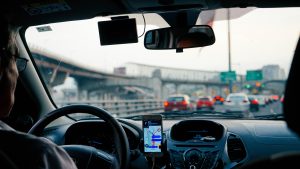 Too often, motorists who receive a traffic citation believe there is no recourse but to plead guilty, pay the fine and move on. While that may be inevitable or the best course of action in some cases, the down side in terms of the cost of the ticket, receiving points on one’s license, which could possibly result in license suspension, and an increase in insurance rates, should be sufficient cause to consider challenging the citation in court. Here are five specific violations and the potential defenses that may be argued.
Too often, motorists who receive a traffic citation believe there is no recourse but to plead guilty, pay the fine and move on. While that may be inevitable or the best course of action in some cases, the down side in terms of the cost of the ticket, receiving points on one’s license, which could possibly result in license suspension, and an increase in insurance rates, should be sufficient cause to consider challenging the citation in court. Here are five specific violations and the potential defenses that may be argued.
Left-hand Turns
Citations for improper left turns are one of the more common violations. They typically fall into one of two categories – turning left in disregard of a posted sign or device or turning left in front of oncoming traffic in an unsafe manner. There is a different approach to each that can prove most effective.
Challenge a violation of turning left against a posted no-turn can be based on a mistake of fact. That is, the turn was made because the sign was not seen. Some evidence through pictures, perhaps, can be used to show the sign was old, faded or obscured by tree branches, for example.
An unsafe turn can be challenged primarily on the basis that the reporting officer’s observations were incorrect. Witness testimony, diagrams showing where the officer was that may demonstrate difficulty in seeing what occurred may be helpful.
Radar Speeding Ticket
Where radar enforcement of speed laws is permitted, there are specific legal requirements for its implementation. The equipment used must be properly operational, and the law enforcement officer operating the equipment must have undergone sufficient training on that equipment. For instance, was the radar gun calibrated most recently within the time period required by the appropriate state law? Has the radar gun been repaired recently? When challenging a ticket, this information can be subpoenaed from the police agency.
An Illegal Act Was Legally Justified
Sometimes a technical violation of the traffic code can be justified if it prevents a greater harm. For example, if a bicycle suddenly pulls between parked cars onto the road in front on an oncoming car, the car may find it necessary to temporarily cross the center double yellow line to avoid a collision. This action should not result in receiving a citation, but if it does, there is a defense.
Improper Stopping
Many areas along the roadways are designated as, “No parking,” or “No stopping.” Sometimes, however, necessity creates a justification. If the vehicle is experiencing mechanical difficulties or the driver or a passenger has a medical emergency, there may be a perfectly valid excuse for the stop.
Left-lane Acceleration
There are some occasions when a drive exceeds the posted speed limit that can be justified. Again, the practical necessity of the particular situation can establish the basis for the action. For example, when merging on to a freeway, if the merge lane is running out, it may be necessary to punch the accelerator to safely make the transition.
A consistent theme for any viable defense to a traffic citation is that it must be based on an established and recognized legal argument. Mistakes of fact, legal justifications or necessities based on the road condition are examples of such types of defenses. In contrast, attempts to base a defense on a personal excuse, such as, I didn’t see the sign,” are certain to fail. Tickets can be costly and especially so for the multiple offender. However, based on the facts and circumstances of each case, there may be an opportunity to achieve a positive resolution in the case.
Contact us today if you need help in fighting a traffic ticket. We have over 25 years of experience fighting traffic tickets and helping people reinstate their license.
Photo: https://unsplash.com/photos/kARZuSYMfrA
Scott Desind
Latest posts by Scott Desind (see all)
- How to Request the County Seat and Fight Your California Traffic Ticket - May 21, 2023
- Don’t Even Touch That Cell Phone - July 13, 2022
- Innocent Until Proven Guilty - March 2, 2020

